Backyard Growers
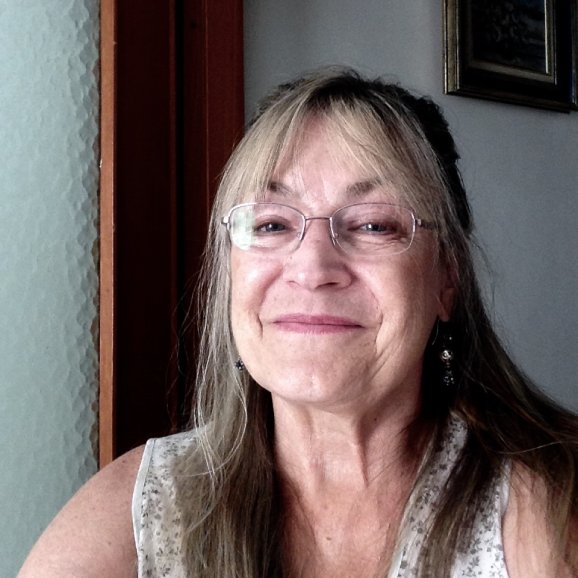
In the small historic city of Gloucester, Massachusetts, hundreds of garden beds are managed by Program Director Corinne Lippie along with more than two hundred volunteers in the non-profit organization, Backyard Growers. Gardening Know How chose them for a 2020 sponsorship based on Corinne's specific request for signage funding.




Gardening in Gloucester
Gloucester has a large immigrant population, many of whom have moved to this city from more rural environments. Corinne talks of a family from Egypt who, in their home country, had access to several acres of land for farming. They now live in one of the city's low-income urban housing developments with minimal access to outdoor usable space. In 2017 Backyard Growers turned a vacant lot at that development into a community garden, a welcome blessing for them and many other families who live there.
The program's need for signage makes more sense when you understand the reach and breadth of this incredible program.
Diversity Exemplified
The signs posted by Backyard Growers at their community gardens offer horticultural instructions, but they're also meant to welcome a wide range of people who speak many different languages.
For instance, one neighborhood has 60 housing units, with a growing percentage of them occupied by immigrant and refugee families. There are at least eight different languages spoken here -- English, Spanish, Portuguese, Italian, Vietnamese, Arabic, Haitian Creole, and several African languages.
In addition to help, support and information, Backyard Growers provides coaching on small-space gardening methods. With this help, families from other countries are able to grow foods that are more culturally relevant and familiar.
Family Gardening
The Backyard Growers organization was established in 2010 around Lara Lepionka's dining room table. Since then, Backyard Growers has built over 400 raised garden beds across Gloucester, providing not only physical spaces but the resources and training for low-to-moderate income children, families and seniors to grow their own food. The program exemplifies how community gardening and education connect people of all ages to one another.
Gardening tips, videos, info and more delivered right to your inbox!
Sign up for the Gardening Know How newsletter today and receive a free download of our most popular eBook "How to Grow Delicious Tomatoes."
Many of the kids of this town have now grown into avid gardeners. As adults, they continue to grow food for families in their neighborhood, while their own children are concurrently learning to garden alongside them. A large number of Gloucester families are now multi-generational gardeners, with teens, parents and grandparents sharing raised beds for family food. But, community gardening is only part of this story.
Gardening at School
Refined and enhanced over almost 10 years, school activities supported by Backyard Growers feature signature pre-school "stone soup" programs, elementary school Salad Days and Fall Harvest Days. In addition, there are fun, aged-up middle school programs that involve growing corn for popcorn and wheat for bread making. The wheat program's bread baking component was provided online to students during the pandemic.
Every year these programs provide 100% of Gloucester's students, from pre-school through 7th grade, with direct hands-on experiences in school gardens. More than 2,000 students a year receive the benefits of a gardening education. Every school in Gloucester enjoys at least five garden beds, and some have more, depending on the size of the school. The food raised by students in school gardens is brought back into the cafeterias for students to consume.
These early school-age experiences have woven their way into the lives of thousands of kids, who have won national awards and who grow up and continue the gardening tradition with their own families.
A Wide Reach Across Gloucester
In addition to managing community and school gardens, Backyard Growers is also involved in coordinating a food pantry garden as well as a homeless shelter garden, both of which serve meals daily.
They've implemented ADA accessible garden beds for seniors. They raise funds to help people establish their own backyard gardens through donations of seedlings, seeds and mentoring. Along with that goes mandatory training in square-foot gardening methods. All gardeners sign an agreement that they will not use chemicals.
This spring, Backyard Growers launched a GrowBag Garden program, providing customized felt grow bags to a thousand people who are short on money, time and/or gardening space. The bags were delivered with soil, seedlings and training, enabling the program to serve people they may not have otherwise reached due to traditional barriers such as lack of home ownership or access to a community garden. Check out their website to learn about all the many facets of this organization. Ambitious and highly successful, Backyard Growers is an immense boon to a small city like Gloucester. Dedicated people like Corinne Lippie and her team provide the backbone of generosity and compassion that keeps it growing and improving everything and everyone touched by it. Gardening Know How is honored to have met them.
Learn More About Our School and Community Garden Sponsorship Program
Every year, Gardening Know How awards $1,000 to 20 different, hand-picked garden projects across the United States and Canada. If your community or school garden has a growing, unmet need for more soil, seeds, fertilizers, building materials, or even just help getting the word out about your program, we're ready and willing to help you meet those needs. As community gardens and school gardening programs spring up all over, we're happy to do our part to help.

Caroline Bloomfield is Manager of Marketing Communications at Gardening Know How since 2019. A northwest native, she has resided and gardened in multiple zones in the U.S. and is currently at home in Eugene, Oregon. Writing and editing for various publications since 1998, her BA in American Studies from Southern Maine University includes an emphasis in English. She was raised in California by avid gardeners and continues to enjoy the natural world with an appreciation for the concepts of sustainability and organic care for the planet.
-
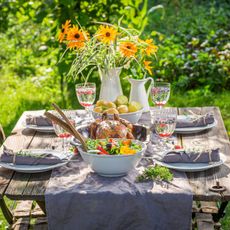 How To Grow Garden To Table: A Guide For Home Cooks
How To Grow Garden To Table: A Guide For Home CooksWhat could be better than a meal that comes directly from garden to table? Show off your gardening and culinary skills with the very freshest food.
By Bonnie L. Grant
-
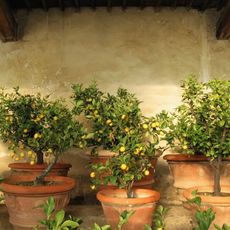 Want a Backyard Mini Orchard? Create Your Own Container Orchard
Want a Backyard Mini Orchard? Create Your Own Container OrchardEasier to care for in small spaces, a backyard mini-orchard makes sense for busy gardeners and juicy fruit is the reward.
By Teo Spengler
-
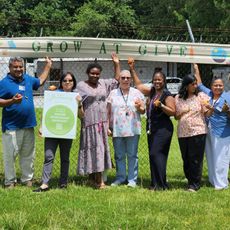 The Grow Garden at GIVE - 2022 Grant Recipient
The Grow Garden at GIVE - 2022 Grant RecipientThis alternative school in Georgia is using its garden to teach kids in all new ways.
By Caroline Bloomfield
-
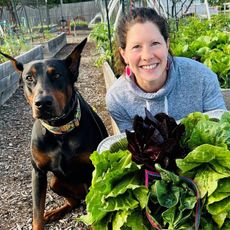 Common Ground Community Garden - 2022 Grant Recipient
Common Ground Community Garden - 2022 Grant RecipientThis Texas community garden has been getting people out of their apartments and into nature for 12 years.
By Caroline Bloomfield
-
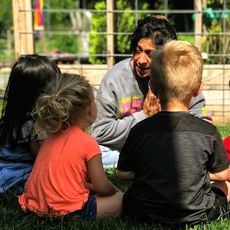 Valley Daycare - 2022 Grant Recipient
Valley Daycare - 2022 Grant RecipientBy Caroline Bloomfield
-
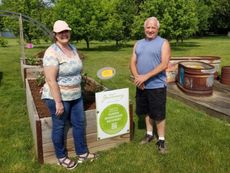 Douglas Discovery Garden – 2022 Grant Recipient
Douglas Discovery Garden – 2022 Grant RecipientBy Caroline Bloomfield
-
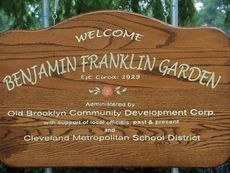 Ben Franklin Elementary School – 2022 Grant Recipient
Ben Franklin Elementary School – 2022 Grant RecipientThis hundred year old garden in Cleveland, Ohio is still going strong with a unique educational program for fourth graders.
By Caroline Bloomfield
-
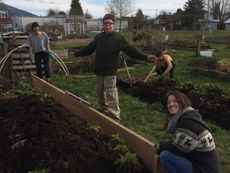 Kin Park Community Garden - 2022 Grant Recipient
Kin Park Community Garden - 2022 Grant RecipientRead about the small town in Vancouver that's bringing its people together with fresh produce and garden plots.
By Caroline Bloomfield
-
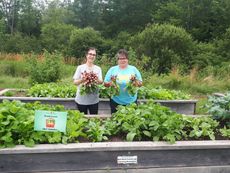 Elmsdale Community Garden – 2022 Grant Recipient
Elmsdale Community Garden – 2022 Grant RecipientThe Elmsdale Community Garden is striving to bring food security to rural Nova Scotia, one garden bed at a time. Read their story here.
By Caroline Bloomfield
-
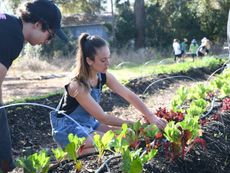 Gainesville Giving Garden - 2022 Grant Recipient
Gainesville Giving Garden - 2022 Grant RecipientThe Gainesville Giving Garden was born from a dream of freedom from food insecurity during the height of covid. Read its story here.
By Caroline Bloomfield
